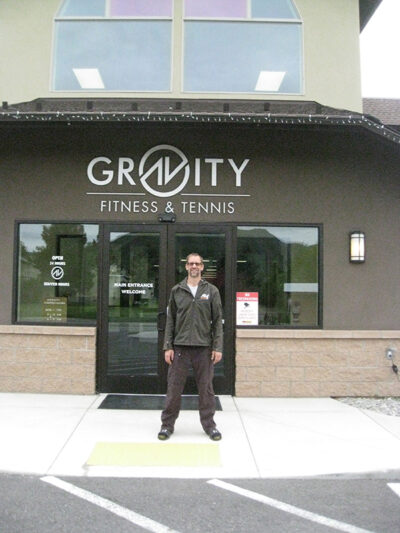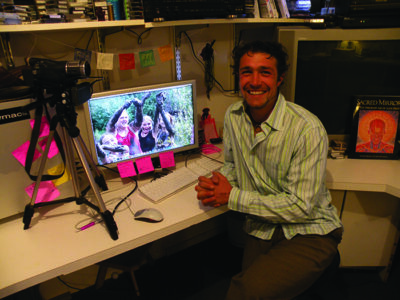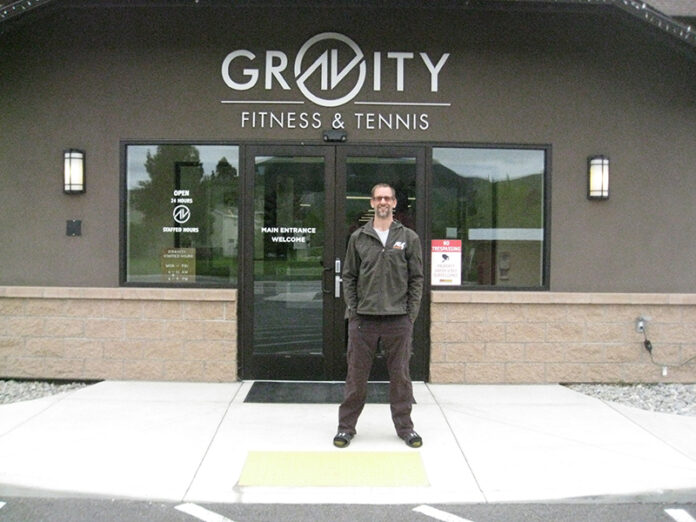Valley proprietors grapple with the economics of clean air
By Eric Valentine

Chances are you’ve probably received an email by now from a business that goes something like this: “In these unprecedented times (insert company name here) … our first priority is to ensure the health and safety of our employees and customers … (insert a bulleted list of coronavirus-related steps being taken here).”
In fact, chances are you received dozens of these emails by now. And as the state is now three days from potentially moving out of the so-called Phase 2 reopening of the economy and into Phase 3—which allows for larger gatherings to take place—business owners and operators are banking, literally, on those emails being far more than lip service.
One thing known about COVID-19 already from the earliest days of the pandemic was that the virus wanted to work its way into the lungs. So as business owners try to ensure the safety of their clientele, some are recognizing the importance of investing in their air filtration systems. Not just normal HVAC cleaning and maintenance, but HVAC systems “on steroids” that utilize something called advanced oxidation technology. It may be just a marketing term, but they can operate 24-7 and clean both the air and surfaces.
“It’s not baloney, this is the real deal,” said Oliver Whitcomb. “We don’t want to get over-confident, but it’s things like this that make us feel a little more relaxed about reopening.”
Breathing Easier
Whitcomb is the operations manager of Hailey-based Gravity Fitness and Tennis, which he owns with eight-time Grand Slam tennis champion Mats Wilander. During the lockdown, they installed into their HVAC system a so-called photohydroionization element. It uses a combination of hydroperoxide and high-intensity UV light to, essentially, do three things: clean the HVAC filters, spread the cleaning agent through the air, and spread the cleaning agent onto surfaces.
“We’d been looking into it even before COVID, but the lockdown pushed us to getting it done sooner than later,” Whitcomb said.
It wasn’t cheap, said Whitcomb, who didn’t elaborate on specific costs since every establishment is different in how much square footage needs coverage. But he’s adamant that it was a good investment.
“It’s way more expensive to have to close a business,” he quipped.
For Whitcomb, who studied Korean culture academically and spent time in South Korea practicing martial arts, Gravity’s new shoe policy makes him breathe easier, too. The gym now requires its patrons to take off their outside shoes and wear a pair of shoes that have only been worn inside the gym. It’s one of the things members have to agree to when they sign up.
“In Korea it’s common to remove your shoes when entering a home and in martial arts you train in bare feet,” Whitcomb observed. “We can cut down on so much germs if culturally we opened up to this practice a little more.”
Gravity will fully open June 1. Right now the gym is beta testing its new policies and practices by offering gym usage to healthcare workers and first responders only. Another new policy is that members have to download a custom app that alerts them when the gym or particular classes have reached a capacity that won’t allow for social distancing. When caps are reached, members know they’ll have to come in at a different time.
“We’ve been working our asses off,” Whitcomb remarked. “Between the PPP and the financial stuff and installing the HVAC system and testing out the app, it’s the busiest we’ve ever been.”
The Outdoor Outlook
 When it comes to providing fresh air, there are other Valley businesses that have an easier time of it. For instance, Idaho BaseCamp—the nonprofit that operates Mountain Adventure Tours—is well-positioned if you consider its normal offering is intensely focused on kids doing outdoor activities. But that doesn’t mean owners Mat and Whitney Gershater didn’t have to recalibrate the summer.
When it comes to providing fresh air, there are other Valley businesses that have an easier time of it. For instance, Idaho BaseCamp—the nonprofit that operates Mountain Adventure Tours—is well-positioned if you consider its normal offering is intensely focused on kids doing outdoor activities. But that doesn’t mean owners Mat and Whitney Gershater didn’t have to recalibrate the summer.
Adhering to social distancing and sanitation policies means added expenses for things like hand sanitizer and cleaning services, all while reducing the number of participants in camps and activities.
“Mat started this 23 years ago with a small group of kids with backpacks on bikes, so we’re returning to those roots a little bit more this year and we feel good about that,” said Whitney Gershater.
Gershater said she’s also trying to feel good about the Valley culture and sense of community. On the one hand, she worries about loosening the bonds that form with large events with live music. But on a more positive note, she’s encouraged to see a new sense of community between the owners and operators of summer camps Valley-wide.
“We started a summer camp coalition that’s been meeting regularly to support each other and share ideas on everything from masks to cancellation policies, so that we can be in alignment,” Gershater said. “For one person, this time can be amazing to reprioritize and do yoga and pursue things you normally have no time for, and for another person, it’s about losing your business. So, I hope there’s a return to compassion from this experience.”

